Emergency HVAC Wadsley
Top 10 Emergency AC Repair in Wadsley
Receive 3 FREE Emergency HVAC quotes for your project today! Compare profiles, reviews, accreditations, portfolio, etc... and choose the best service.
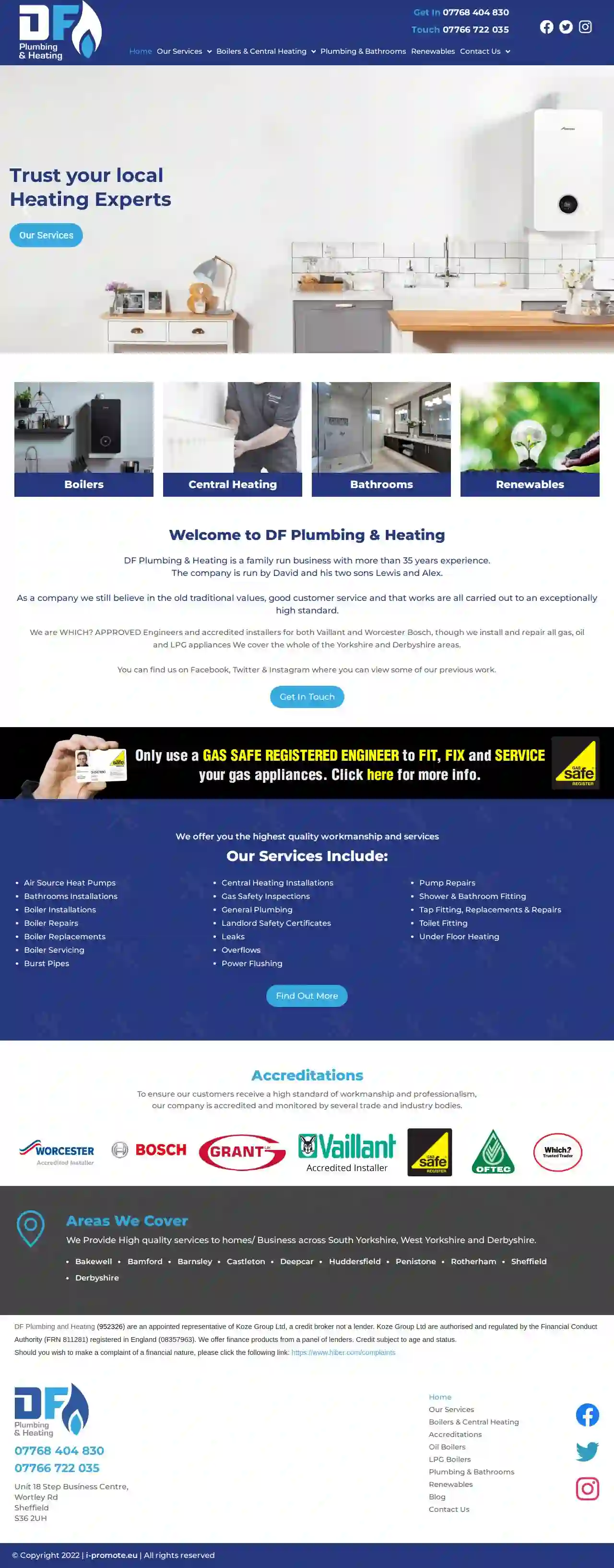
D F Plumbing & Heating
3.915 reviewsWortley Rd, Unit 18 Step Business Centre, Sheffield, S36 2UH, GBDF Plumbing & Heating is a family run business with over 35 years experience. The company is run by David and his two sons Lewis and Alex. As a company we still believe in the old traditional values, good customer service and that works are all carried out to an exceptionally high standard. We are WHICH? APPROVED Engineers and accredited installers for both Vaillant and Worcester Bosch, though we install and repair all gas, oil and LPG appliances. We cover the whole of the Yorkshire and Derbyshire areas. You can find us on Facebook, Twitter & Instagram where you can view some of our previous work.
- Services
- Why Us?
- Accreditations
- Our Team
- Gallery
Get Quote
Ac bathrooms and heating
4.415 reviewsUnit 6, Rutland Way, Sheffield, S3 8DG, GBWelcome to AC Bathrooms and Heating, a long established company that has been supplying both trade and retail customers in the South Yorkshire area for over 10 years. Our focus is on providing a quality, first class service specialising in a full range of bathrooms, heating and plumbing appliances and goods. We have just opened a bathroom showroom at our new premises in Sheffield, displays include full bathroom suites, shower enclosures, cloakroom sets, designer radiators and much more. At AC Bathrooms and Heating we pride ourselves on excellent customer service and are always on hand to provide help and advice.
- Services
- Why Us?
- Our Team
- Gallery
Get Quote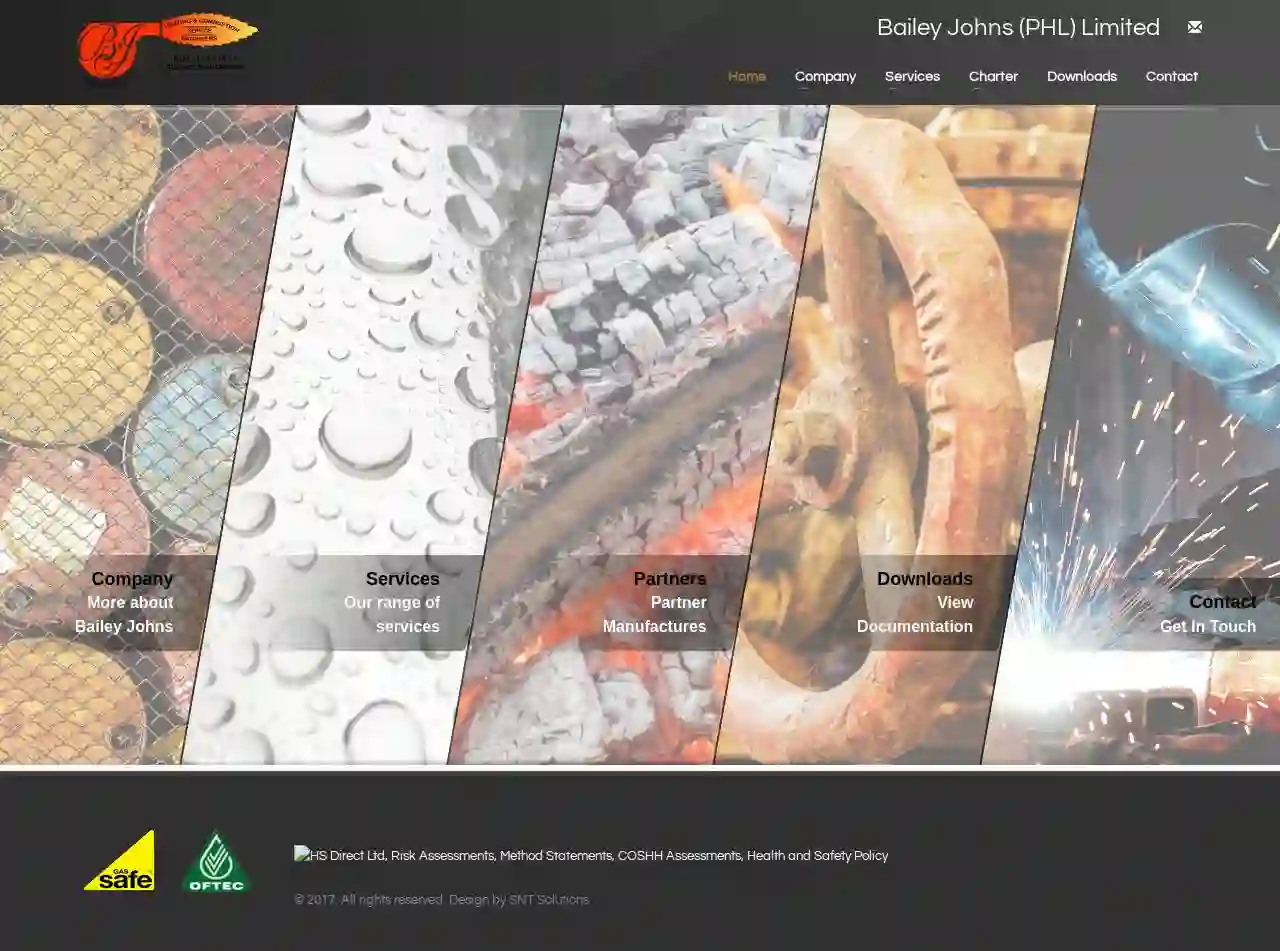
Bailey Johns (PHL) Ltd
54 reviewsSheffield, GBBailey Johns (PHL) Limited is a company that provides a range of services, including planned maintenance, boiler services, warm air heater sales, fault finding, new installations, on-site commissioning, and system design. They also offer safety tips and helpful hints. The company covers a wide area and has a team of experienced professionals.
- Services
- Why Us?
- Gallery
Get Quote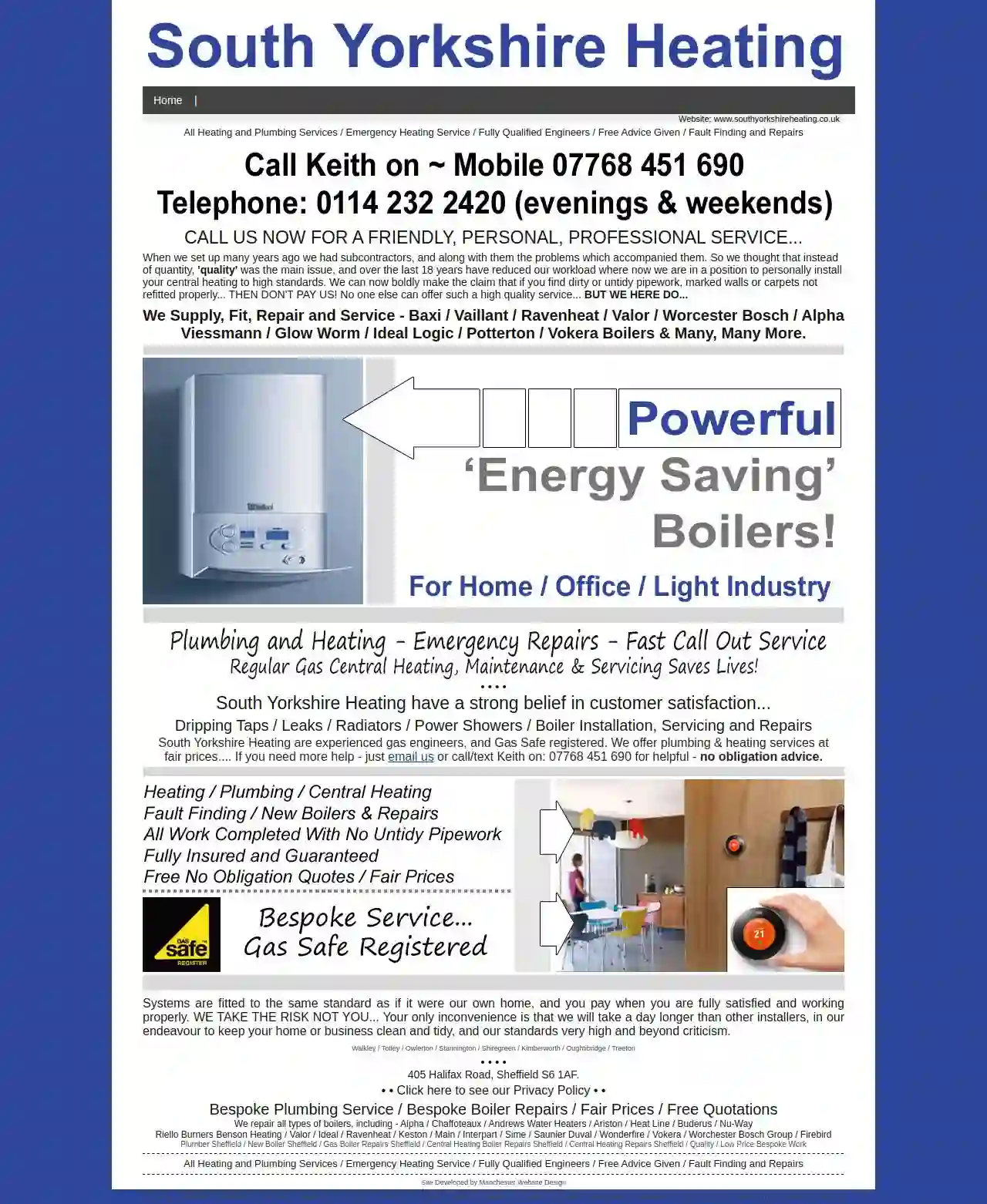
South Yorkshire Heating
4.65 reviews405 Halifax Road, Sheffield, S6 1AF, GBSouth Yorkshire Heating is a local business that provides high-quality heating and plumbing services. We have been in operation for over 18 years and have a strong belief in customer satisfaction. Our team of experienced gas engineers is Gas Safe registered and offers services at fair prices. We supply, fit, repair, and service a wide range of boilers, including Baxi, Vaillant, Ravenheat, Valor, Worcester Bosch, Alpha, Viessmann, Glow Worm, Ideal Logic, Potterton, and Vokera. We take pride in our work and ensure that all systems are fitted to the same standard as if it were our own home. We take the risk, not you, and you only pay when you are fully satisfied and the system is working properly. We also offer bespoke plumbing services, boiler repairs, and fair prices with free quotations. We repair all types of boilers and have a strong reputation for quality and low prices. Our services include emergency heating service, boiler installation, servicing, and repairs, as well as plumbing services for dripping taps, leaks, radiators, and power showers. We serve various areas, including Kimberworth, Shiregreen, Walkley, Totley, Owlerton, Stannington, and Treeton.
- Services
- Why Us?
- Accreditations
- Gallery
Get Quote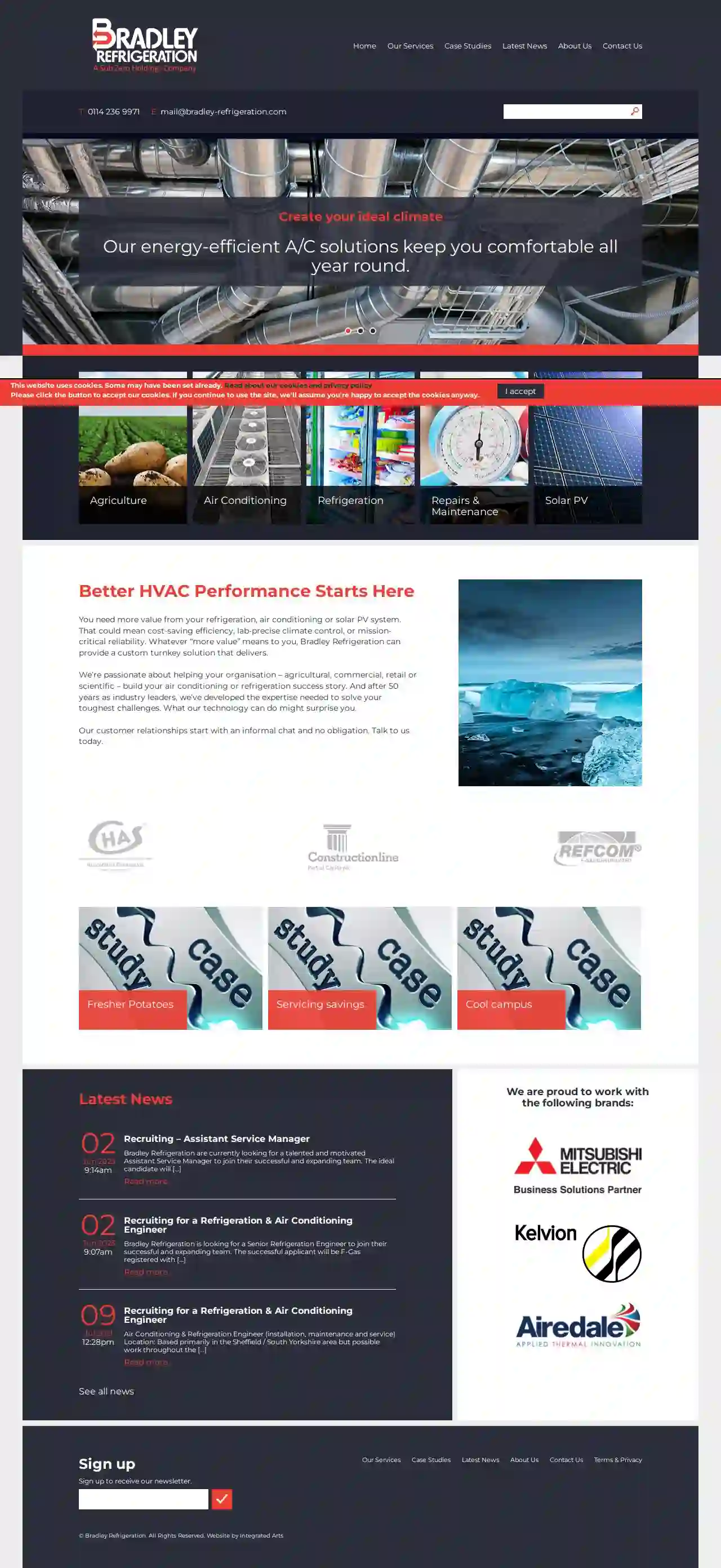
Bradley Refrigeration Ltd
4.310 reviewsSheffield, GBBradley Refrigeration is a leading provider of refrigeration, air conditioning, and solar photo voltaic solutions. With over 50 years of experience, we have developed expertise in delivering custom turnkey solutions that meet the unique needs of our clients. Our services include agriculture, air conditioning, refrigeration, repairs and maintenance, and solar PV. We are passionate about helping our clients build their success stories and have developed a reputation for delivering high-quality solutions that exceed expectations. Our customer relationships start with an informal chat and no obligation. Talk to us today.
- Services
- Why Us?
- Gallery
Get Quote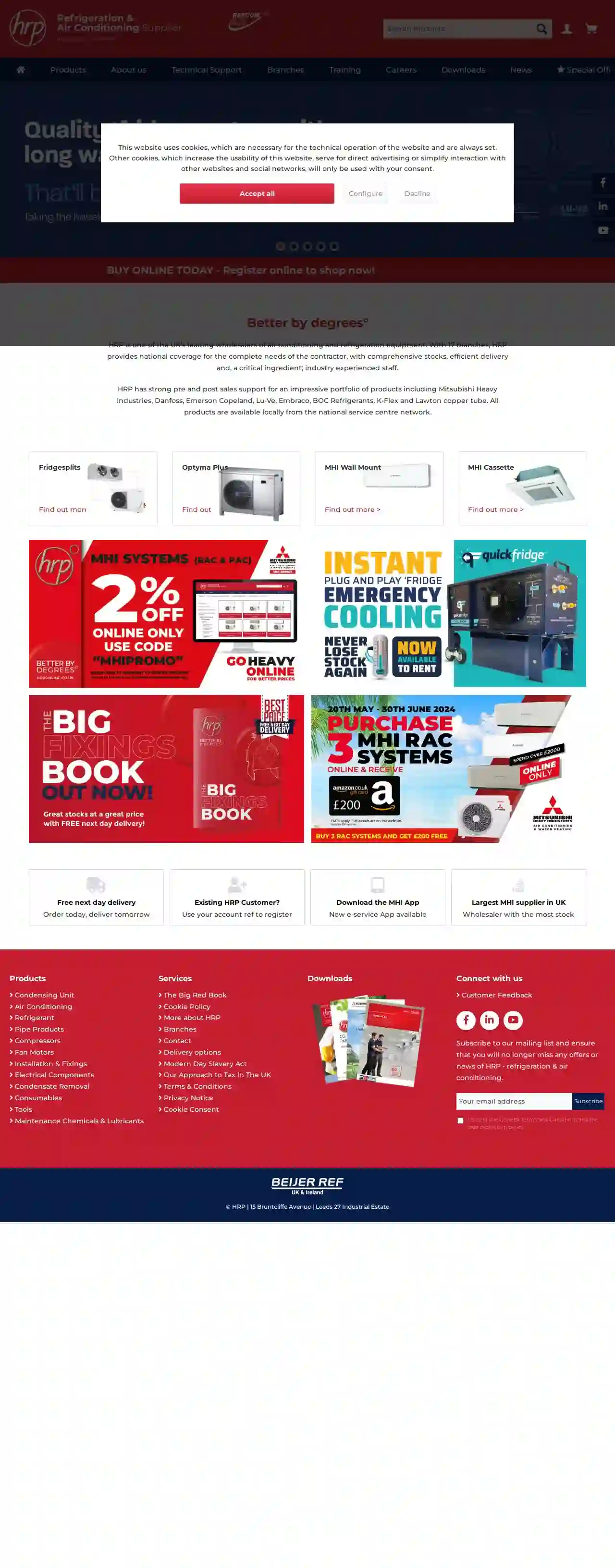
HRP Wholesale
3.85 reviewsSheffield, GBTrading since 1945 HRP is one of the longest established refrigeration and air conditioning wholesalers in the UK.
- Services
- Why Us?
- Gallery
Get Quote
Go Assist - Appliance Repairs, Plumbers, Boiler Engineers & Electricians
4.52 reviewsBournemouth, BH8 8EY, 21 Oxford Road, S1 2HH, GBAt Go Assist, we provide a one-stop solution for homeowners and landlords, offering services regarding plumbing, electrical, appliances, boilers, locksmiths and pest control. Whether your domestic appliance is faulty, boiler has broken down, fuse box has tripped, or tap is leaking – you have come to the right place. We provide quality repairs for home breakdowns from a team of reliable, vetted engineers. We will always aim to get out to you the same day, boasting an impressive engineer response time and first-time fix rate. Our engineers are not only repair experts but are qualified to assist with installations and replacements such as light fittings, toilets, and showers, making home improvements an easy stress-free process. We are proud to provide services to help landlords abide by the necessary rules and regulations by carrying out boiler services, EPCS, and EICRs in rented properties.
- Services
- Why Us?
- Gallery
Get Quote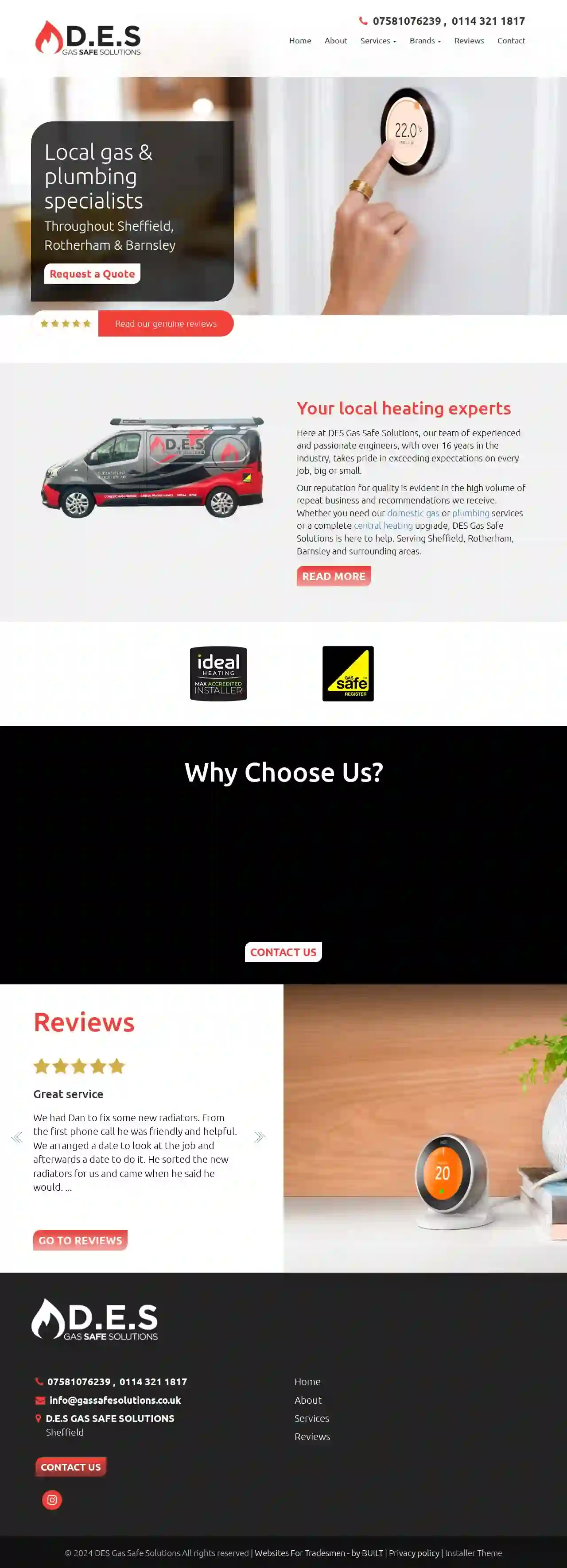
D.E.S Gas Safe Solutions
515 reviewsSheffield, GB- Services
- Why Us?
- Gallery
Get Quote
Love Your Boiler
4.956 reviewsUnit 1, 100-102 Ecclesall Road, Sheffield, S10 2AA, GBLove Your Boiler is a local boiler installation and servicing company based in Sheffield, Yorkshire. We are fully qualified and Gas Safe registered engineers, dedicated to providing a professional and reliable service to our customers. We install, service and maintain all types of boilers, including combi boilers, system boilers, regular boilers and log burners. We also offer a range of other plumbing services, such as boiler repairs, radiator installations and central heating system upgrades. We pride ourselves on our commitment to customer satisfaction and our competitive prices. We offer free quotes and flexible appointment times to suit your needs. Get in touch today to find out more about our services or to book a free boiler quote.
- Services
- Why Us?
- Accreditations
- Our Team
- Testimonials
- Gallery
Get Quote
Escafeld Mechanical Services Ltd
51 reviewsUnit 4, Hillside Business Park, New Street, Hillside Business Park New Street Holbrook Industrial Estate Sheffield, Sheffield, S20 3GH, GBWe are a South Yorkshire based Mechanical services company carrying out HVAC related work in the Commercial and Industrial sectors. Our company incorporates personnel with an active involvement in the industry for over 40 years, and can assist in many unique circumstances.
- Services
- Why Us?
- Our Team
- Gallery
Get Quote
Over 12,692+ HVAC Contractors registered
Our HVAC experts operate in Wadsley and surroundings!
HVACCompaniesHub has curated and vetted Top HVAC Businesses near Wadsley. Find a top & reliable contractor today.
Frequently Asked Questions About Emergency HVAC Services
- Insulate Pipes: Insulate exposed pipes in unheated areas, such as crawl spaces, attics, and garages.
- Seal Air Leaks: Seal air leaks and cracks in walls and foundations near pipes.
- Keep Thermostat Consistent: Maintain a consistent thermostat setting, even when you are away, to keep indoor temperatures above freezing.
- Open Cabinet Doors: Open cabinet doors under sinks to help prevent pipes from freezing.
- Let Faucets Drip: During extremely cold weather, allow faucets to drip slightly to relieve pressure and prevent pipes from bursting.
- Turn off the system: Switch off your HVAC system at the thermostat.
- Turn off the power: Locate the circuit breaker for your HVAC system and turn it off.
- Wait: Wait a few minutes for the system to completely power down.
- Restore power: Turn the circuit breaker back on.
- Turn on the system: Switch your HVAC system on at the thermostat.
- Change or clean air filters every 1-3 months.
- Clear debris from around the outdoor unit.
- Check and clean the evaporator coil (if accessible).
- Inspect refrigerant lines for leaks.
How can I prevent frozen pipes in the winter?
How do I reset my HVAC system?
How often should I replace my AC unit?
How do I maintain my air conditioner?
How can I prevent frozen pipes in the winter?
- Insulate Pipes: Insulate exposed pipes in unheated areas, such as crawl spaces, attics, and garages.
- Seal Air Leaks: Seal air leaks and cracks in walls and foundations near pipes.
- Keep Thermostat Consistent: Maintain a consistent thermostat setting, even when you are away, to keep indoor temperatures above freezing.
- Open Cabinet Doors: Open cabinet doors under sinks to allow warmer air to circulate around pipes.
- Let Faucets Drip: During freezing temperatures, allow cold water taps to drip slowly to relieve pressure and prevent pipes from bursting.
How do I reset my HVAC system?
- Turn off the system: Switch off your HVAC system at the thermostat.
- Turn off the power: Locate the circuit breaker for your HVAC system and turn it off.
- Wait: Wait a few minutes for the system to completely power down.
- Restore power: Turn the circuit breaker back on.
- Turn on the system: Switch your HVAC system on at the thermostat.
How often should I replace my AC unit?
How do I maintain my air conditioner?
- Change or clean air filters every 1-3 months.
- Clear debris from around the outdoor unit.
- Check and clean the evaporator coil (if accessible).
- Inspect refrigerant lines for leaks.